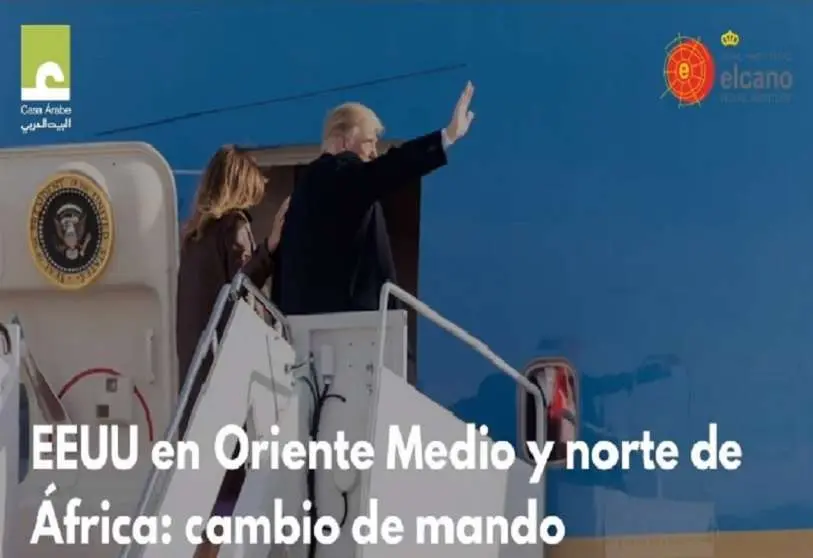The legacy of the Trump Administration in the Middle East and North Africa

The Trump Administration has been very controversial in its policies in the Middle East. The transfer of the US embassy from Tel Aviv to Jerusalem and the consequent recognition of this as the capital of Israel, the United States' withdrawal from the nuclear programme with Iran, the cutback in funds for the UN programme for Palestinian refugees and the various agreements between the Arab countries and Israel promoted by Washington are some examples of these controversial decisions.
But there appears to be a change of course after the elections and the most recurrent question right now is: what can be expected of the next administration in the field of relations with the Middle East and North Africa?
To this end, Casa Árabe brought together four leading figures on Monday 23 November to discuss Trump's legacy in the Middle East and the Maghreb and the changes that the new Biden administration could bring.
In an attempt to offer some keys, the debate was attended by Rami Khouri, Professor of Journalism at the American University in Beirut and Senior Fellow at the Harvard Kennedy School; Intissar Fakir, Editor of the Sada newsletter of the Carnegie Endowment for International Peace; Haizam Amirah Fernández, Senior Researcher on the Mediterranean and the Arab World at the Real Instituto Elcano, and Ali Fathollah-Nejad, Researcher at the Afro-Middle East Centre (AMEC).
Trump's legacy, according to Rami Khouri, has not meant a radical change from previous administrations.Trump has perpetuated the prevailing view of the United States in this region. "The Trump Administration has continued the policy of the past, we should not exaggerate the great difference, but has accentuated a failed policy that had been in place in previous administrations".
Among the most damaging policies that have been implemented in this field, Intissar Fakir stresses, are: the reduction in the entry of Muslim immigrants and, above all, the escalation of tension with Iran, as well as the imposition of strict economic sanctions. In short, the four analysts have made it clear that the Trump Administration has not entailed any break with previous administrations, but rather an element of continuity.

It should be stressed that, as regards decision-making in the field of international policy, Trump, following his usual tone, has not been very orthodox. "The president has not asked for the opinion of the intelligence agencies and state departments. We could call it nepotism as he works with his family who do not have the necessary knowledge to draw up state policies. He has run it like a family business," Haizam Amirah Fernández stressed during his speech.
The United States has never had a special interest in the North African region. But as a result of the recent clashes between the Polisario and Morocco, the Trump Administration has a great opportunity in the region. The US president could take advantage of it and attempt to push Rabat to normalise relations with Israel in exchange for recognising its sovereignty in Western Sahara. Although this would not imply that other countries would follow suit, it would cause great instability in the Middle East.
During the event, the question that everyone is asking is: what will Biden do? It is difficult to predict the future. First of all, it is necessary to see and analyse how the transition from one administration to another takes place.
Intissar Fakir said, "There is a general consensus that Biden will want to restore a sense of stability. A more predictable policy that is less erratic. With modest involvement North Africa or zero involvement".
It is also important to stress that the policies he may pursue will depend above all on the stability of the region. But if we take into account his experience during the Obama administration we will see that the tendency will be to limit his interference in the Middle East. He will seek to strengthen relations with the European countries, as he stated in his election campaign, and promote a less risky policy.








